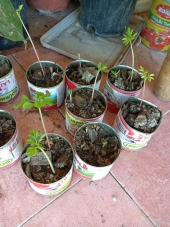
 1
1




 1
1




we don't have a problem with lack of water we have a problem with mismanagement
beavers the original permies farmers
If there is no one around to smell you ,do you really stink!




jimmy gallop wrote:I use weeds soak in water as long or short time ,make a useful quick tea.if you soak too long it goes sour and will burn plants if not diluted.
 1
1




we don't have a problem with lack of water we have a problem with mismanagement
beavers the original permies farmers
If there is no one around to smell you ,do you really stink!




we don't have a problem with lack of water we have a problem with mismanagement
beavers the original permies farmers
If there is no one around to smell you ,do you really stink!




Gardens in my mind never need water
Castles in the air never have a wet basement
Well made buildings are fractal -- equally intelligent design at every level of detail.
Bright sparks remind others that they too can dance
What I am looking for is looking for me too!

 4
4




It's never too late to start! I retired to homestead on the slopes of Mauna Loa, an active volcano. I relate snippets of my endeavor on my blog : www.kaufarmer.blogspot.com








“We can complain because rose bushes have thorns, or rejoice because thorn bushes have roses.” — Abraham Lincoln




 3
3









My favorite thing to do with leaves is to make leaf mold. All that needs to be done to make this is to find an empty corner in your yard and just pile all the leaves there and forget about the leaves until mother nature turns the leaves into leaf mold.
Invasive plants are Earth's way of insisting we notice her medicines. Stephen Herrod Buhner
Everyone learns what works by learning what doesn't work. Stephen Herrod Buhner




Explore the Permies Digital Market - ebooks, movies, building plans, courses, and more. Oh my!



|
An elephant? An actual elephant. Into the apartment. How is the floor still here. Hold this tiny ad:
A PDC for cold climate homesteaders
http://permaculture-design-course.com
|

